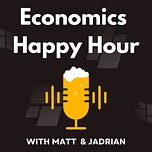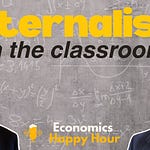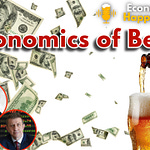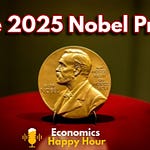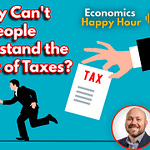In this episode, we take a dive into the fascinating world of how human behavior influences economic decision-making. We discuss the New Year's resolutions and the role that commitment devices can play in helping us stick to our goals. If you're someone who has struggled to follow through on your resolutions in the past, this episode is for you. We'll be exploring the psychological factors that can make it difficult for us to stay committed to our resolutions, and we'll be sharing some practical tips and strategies for using commitment devices to increase our chances of success. So join us as we dive into the science of behavior change and learn how to make lasting changes in the new year.
In this episode, we chat about the following topics:
Talk about New Year’s resolutions
Introduce behavioral economics and some of the key biases that affect our decision making
Cover some popular commitment devices to help people achieve their goals
Pop culture economics examples of behavioral economics & K-Pop
Matt has a longer video discussing the KPOP musical’s closure
Read Jadrian’s paper on using K-Pop to teach
Watch Episode #2 on YouTube:
Some Show Notes:
Matt’s drink of choice for this episode was a Patchway - an American Pale Ale from Marzoni’s. Since Jadrian was in the office for this episode, he opted for something nonalcoholic! A root beer would keep with the theme of the podcast, but he opted for a Handcrafted Vanilla Cream from Virgil’s at the last minute.
Matt & Jadrian met up for this episode before the first one was even posted, so you’ll need to forgive them if they haven’t incorporated your feedback yet. If you missed Episode 1, catch it here:
Matt & Jadrian have been furiously creating a lot of social media platforms to help share this podcast. Follow us on Twitter and subscribe to the YouTube channel. We’ll continue to share links as we figure more stuff out, but you can also follow us individually on Twitter (Matt | Jadrian) or LinkedIn (Matt | Jadrian).
In this episode, we chat about behavioral economics. There’s a lot going on with this episode since we’re trying to squeeze an entire field into one show. Largely, behavioral economics looks at the intersection between economics and psychology to determine how people make decisions. One of the big topics we wanted to talk about was a concept known as choice architecture, which focuses on how options are framed and what is considered the “default” option. The concept has been studied to help people save more for retirement, increase organ donations, and eat healthier.
Behavioral economics was a really popular field through the 1990s and two different Nobel Prizes have been awarded for behavioral economics (Daniel Kahneman in 2002 and Richard Thaler in 2017) and one for experimental economics (Vernon Smith in 2002). Matt even wrote his dissertation using the tools of experimental economics! If you’re looking for a good book on behavioral economics, Richard Thaler and co-author, Cass Sunstein, wrote Nudge.

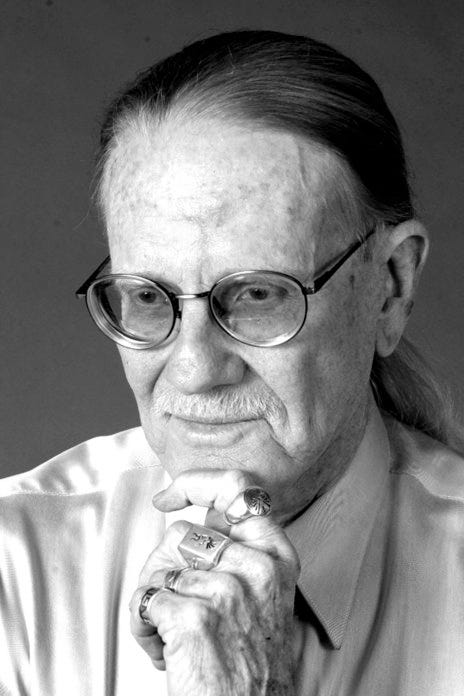
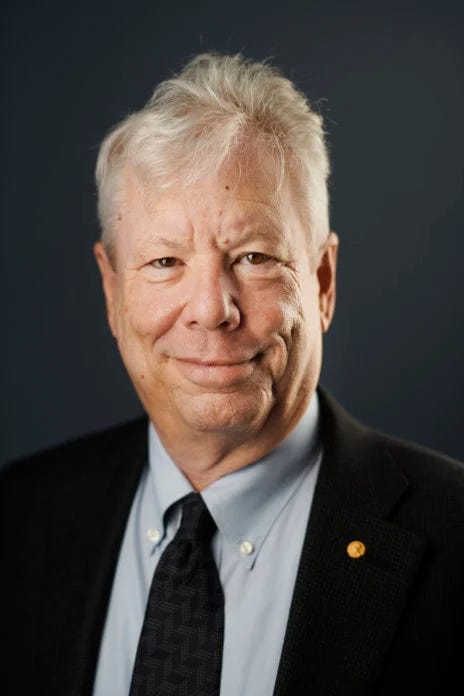
There are a lot of different behavioral economics concepts, but there are a few predictable pitfalls in decision-making that lead people to behave irrationally. There are a lot of good examples of people who tend to:
Misperceive opportunity costs and often add sunk costs to the calculation
Be overconfident in their abilities
Have unrealistic expectations about their future behavior
Practice mental accounting
Be oversensitive to losses
Prefer the status quo when better options may be available
One of Jadrian’s favorite behavioral concepts is overconfidence. The Higher Education Research Institute has been surveying college freshmen for over 50 years about how they would rank themselves relative to other students on a variety of topics. The data is fascinating, but a majority of students largely report being “above average” in various things. Here are the results for just a few of the questions in the survey:
Matt & Jadrian wanted to talk about behavioral economics for this episode because they knew people might commit to a new year’s resolution. Matt has committed to abstaining from alcohol for the entire month of January–known as Dry January– except for a few days he’ll be in Florida for his vacation. Jadrian will renew his commitment to reading at least 52 books during the year. If you’re committing to a resolution for 2023, let us know by leaving a comment:
Resolutions are often really hard to maintain, partly because we’re overconfident about our future selves. People often fail to achieve their resolutions. Thankfully, understanding behavioral economics can actually help you! People hate losing things, so if you commit to paying someone if you don’t achieve your goal then you’re more likely to reach your goal. Good news: Matt will pay one of our subscribers if he can’t complete his Dry January goal! You have to leave a comment on Substack to be considered for a chance to win Matt’s money.
There are other commitment devices out there, including apps that will deduct money from your bank account if you don’t go to the gym and the threat of your friends and family seeing you in a bathing suit on social media. A lot of people need commitment devices because they know their future self isn’t reliable. Planet Fitness has a notorious difficult cancelation policy, but the monthly membership is really cheap. As a result, a lot of people (even Jadrian) pay the monthly fee and never go.
If you have a creative commitment device (or you need Matt and Jadrian to create one for you), leave a comment and let us know. We love hearing the ways that people creatively fight the urge to quit. If you’re reading/listening well after you quit, we’d love to know how long you made it.
This Week’s Pop Culture References
This week we decided to chat about K-Pop. K-Pop is incredibly popular around the world, with BTS likely being the biggest group and BLACKPINK being the biggest girl group. Despite the global market for the genre, the Broadway show hasn’t been successful. Matt highlighted the announcement of KPOP the musical closing right before the big holiday season. This is the biggest time of the year for Broadway musicals, which makes it strange that a show would close before the biggest time of the year. Despite all the costs associated with developing the show already being sunk, the producers likely believed that they couldn’t earn enough revenue to cover the variable (running) costs.
For Jadrian, his connection with K-Pop is on the teaching side. A couple of years ago he teamed up with Wayne Geerling and Angelito Carma to write a paper on how K-Pop can be used to teach different economic concepts, including sunk costs and behavioral economics. That paper was eventually published in the International Review of Economics Education, but he also worked with Wayne again on a K-Pop paper for the Journal for Economic Educators. The main song that they highlighted for behavioral economics was BLACKPINK’s Kill This Love. You may want to turn on the English subtitles to help you connect the story back to our chat earlier on behavioral economics:


